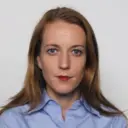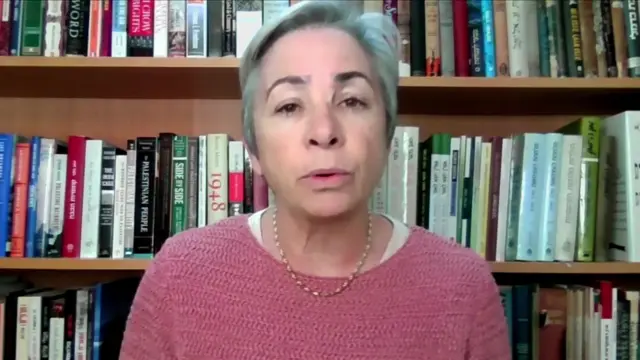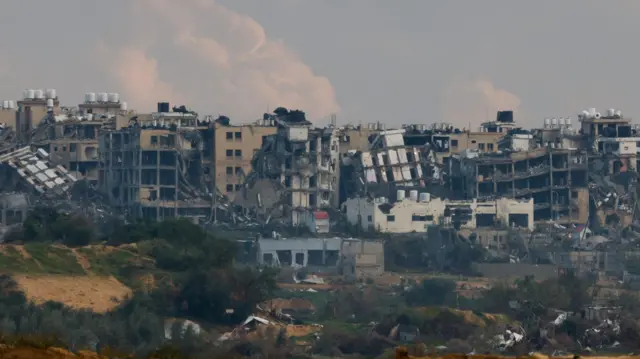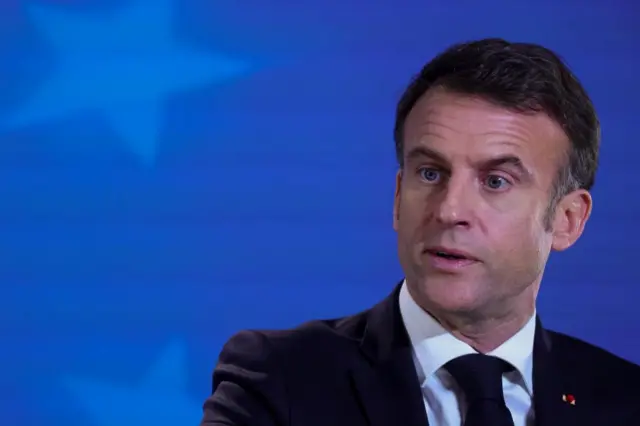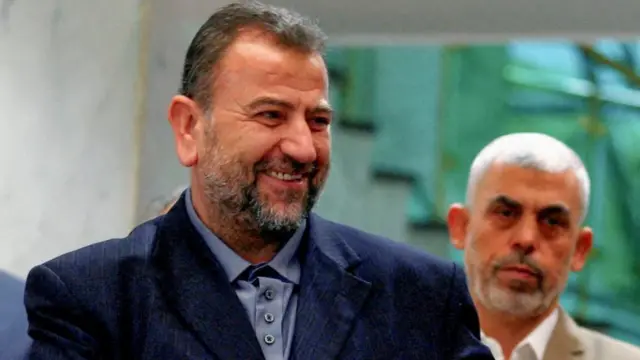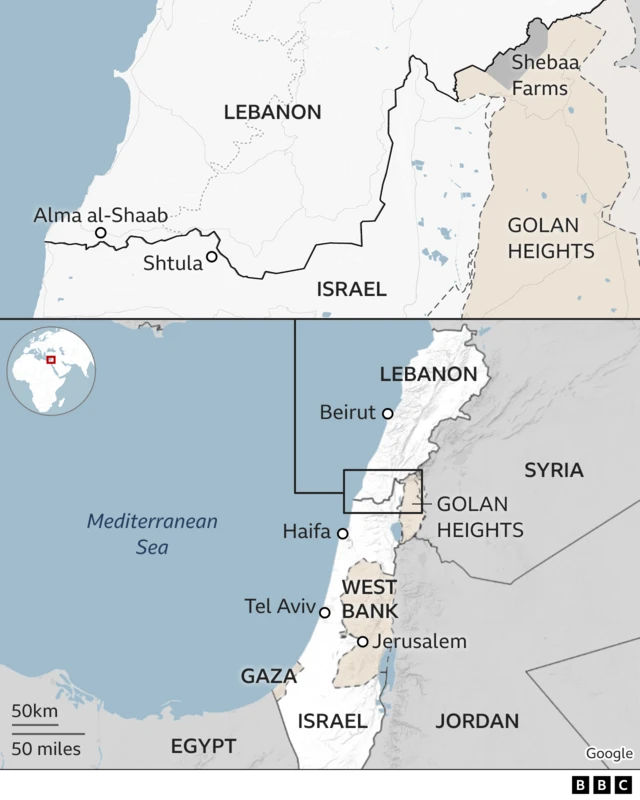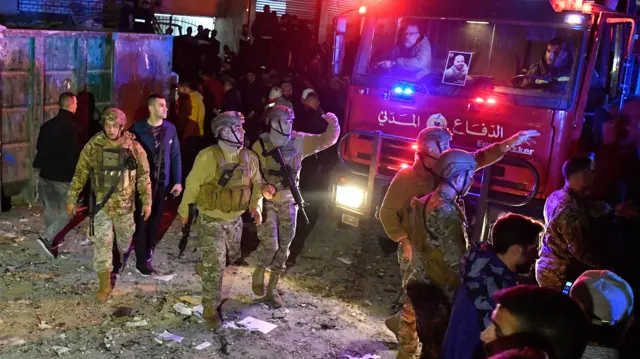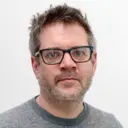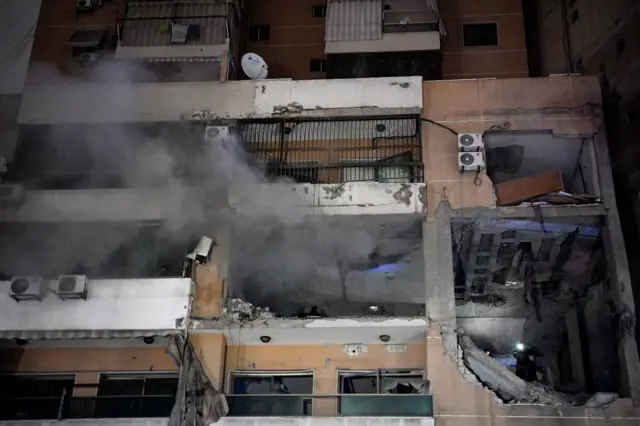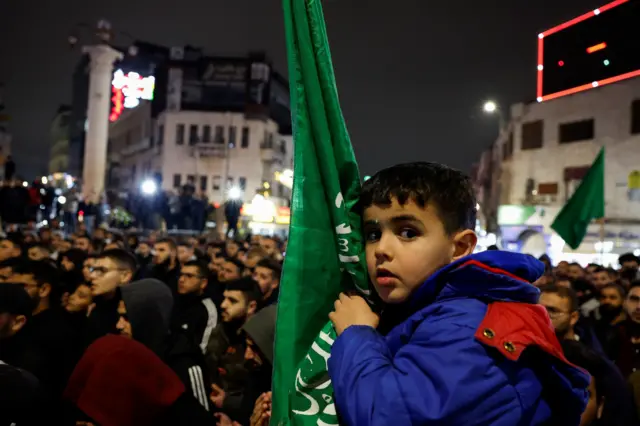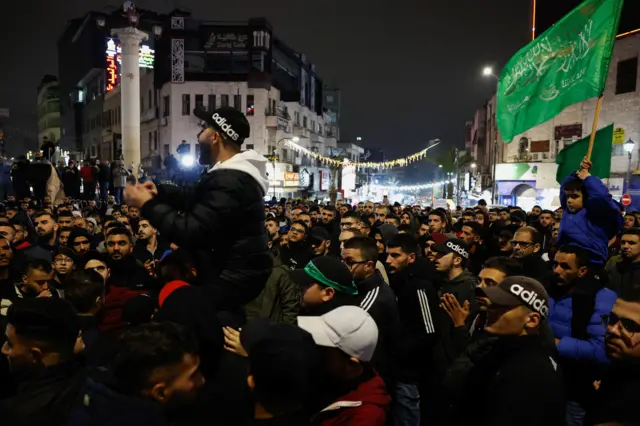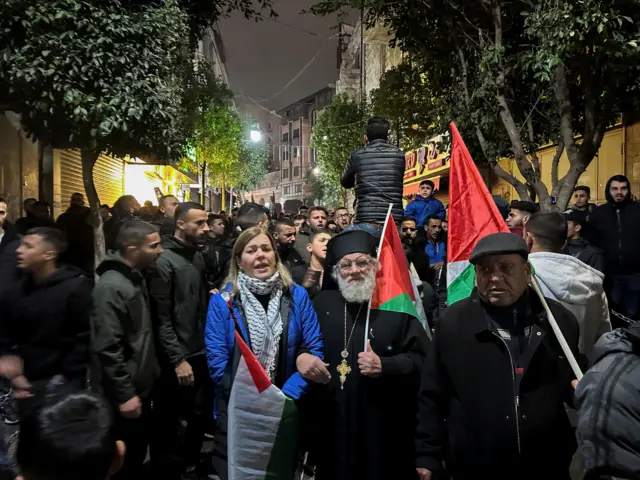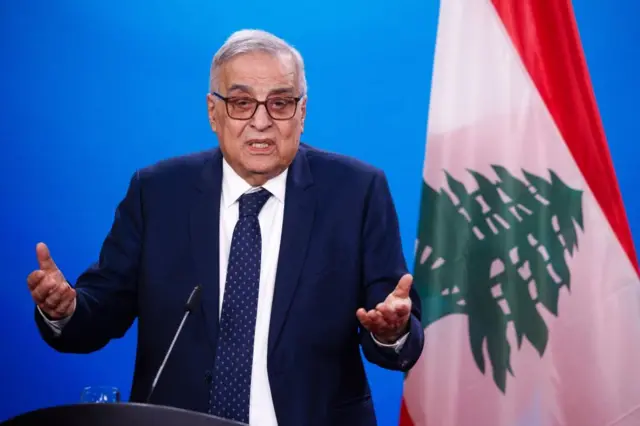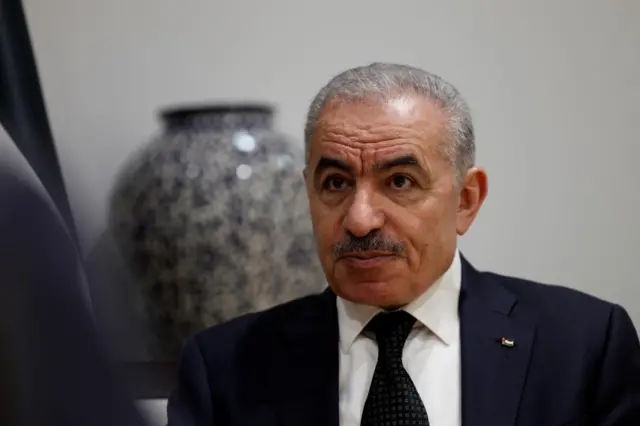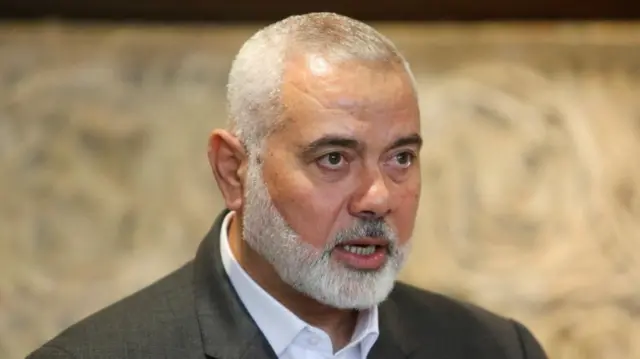UN peacekeepers on Lebanon border implore all sides to cease firepublished at 09:22 GMT 3 January 2024
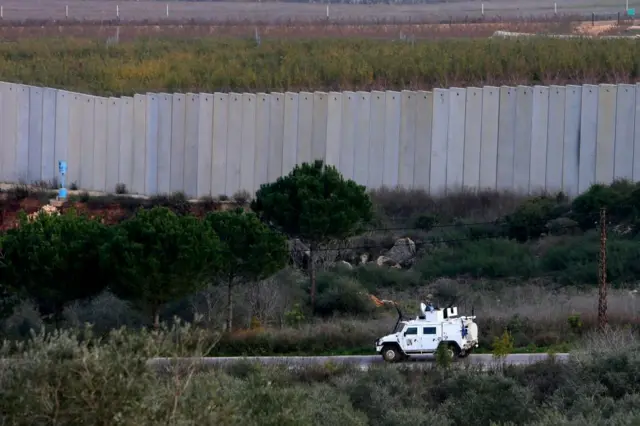 Image source, STR/EPA-EFE/REX/Shutterstock
Image source, STR/EPA-EFE/REX/ShutterstockUnifil patrols the border wall between Lebanon and Israel, in Kfar Kila town, southern Lebanon
The United Nations peacekeeping mission in Lebanon says it's "deeply concerned" by any potential escalation in tensions following a strike in Beirut that killed a top Hamas leader.
Unifil, (United Nations Interim Force in Lebanon) is responsible for monitoring the Blue Line, the unofficial frontier between Lebanon and Israel.
Spokesperson Kandice Ardiel says: "We continue to implore all parties to cease their fire, and any interlocutors with influence to urge restraint."
Israel and Hezbollah, which is backed by Iran, have been firing at each other on a regular basis since the Gaza war began in October.
You can read more about the Blue Line here.
